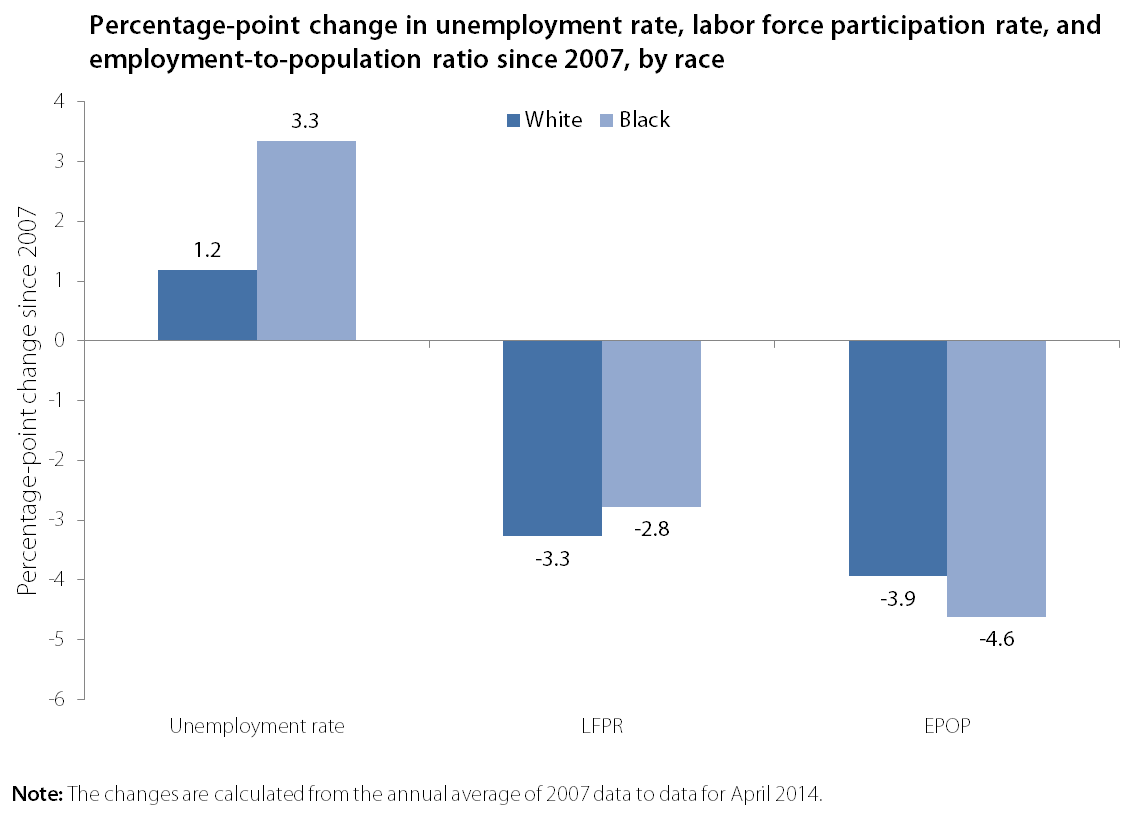The African American Labor Force Shows Remarkable Resilience
Today’s jobs report brings some positive news to balance the disappointing first quarter estimates of GDP growth (a meager 0.1 percent) announced earlier this week; there were 288,000 jobs added in April. At the same time, the unemployment rate fell to 6.3 percent, but this decline was entirely the result of people leaving the labor force, not people finding work. While all major race and ethnic groups experienced a similar pattern of declining unemployment rates and labor force participation rates in April, there are some interesting insights into the upward trend in the black-white unemployment rate gap to be gained from today’s numbers.
As unemployment rates have gradually declined over the last four years, the black-white unemployment rate ratio has been increasing and is currently higher than it was before the recession, meaning that there’s been less improvement in the black unemployment rate than the white rate. Indeed, the African American unemployment rate remains 3.3 percentage points higher than the 2007 average while the white unemployment rate is just 1.2 percentage points higher than in 2007.
Further, when we look at the difference between the current and 2007 employment-population ratios, we find that the decline in the share of employed working age adults in the population was greater for African Americans (down 4.6 percentage points) than for whites (down 3.9 percentage points).
Yet, despite worse employment prospects, African Americans have experienced less reduction in their labor force participation rate than whites, contributing to less change in unemployment rates as unemployed workers continue to search for work. The African American labor force participation rate is just 2.8 percentage points lower than in 2007, compared to 3.3 percentage points lower for whites.

This point is also supported by the fact that long-term unemployment remains higher for African Americans than whites, reflecting the fact that unemployed African Americans face greater challenges in securing new employment, but also the fact that, by and large, African American job seekers continue to hold on to hopes of finding a job despite this difficulty. In short, the black-white unemployment rate ratio has grown partly because African American workers have remained relatively more attached to the labor force than their white counterparts over the course of the recession and recovery.
Enjoyed this post?
Sign up for EPI's newsletter so you never miss our research and insights on ways to make the economy work better for everyone.